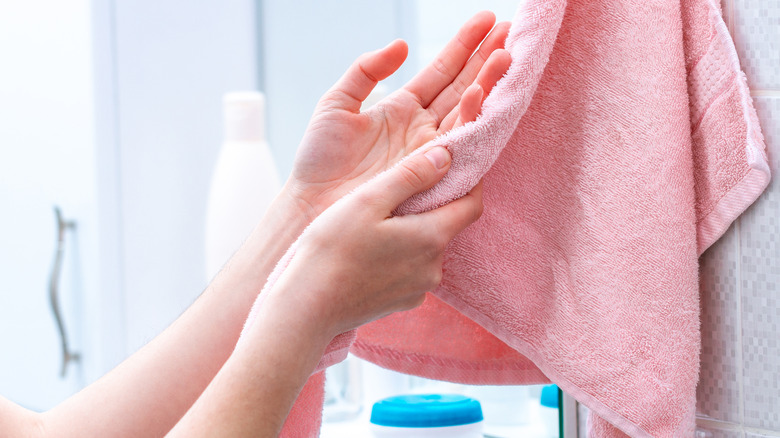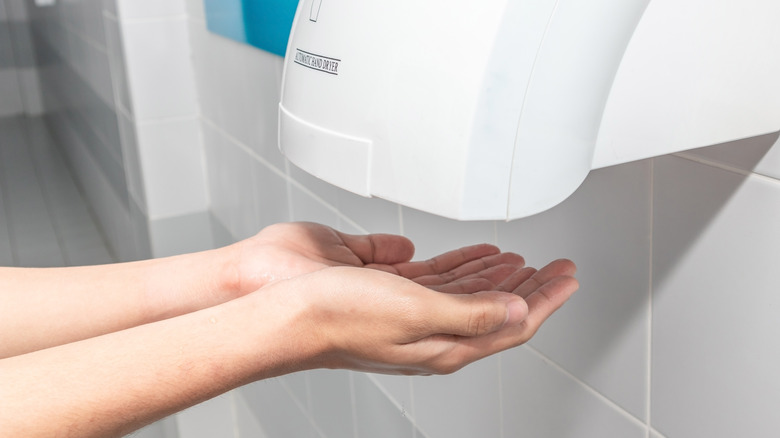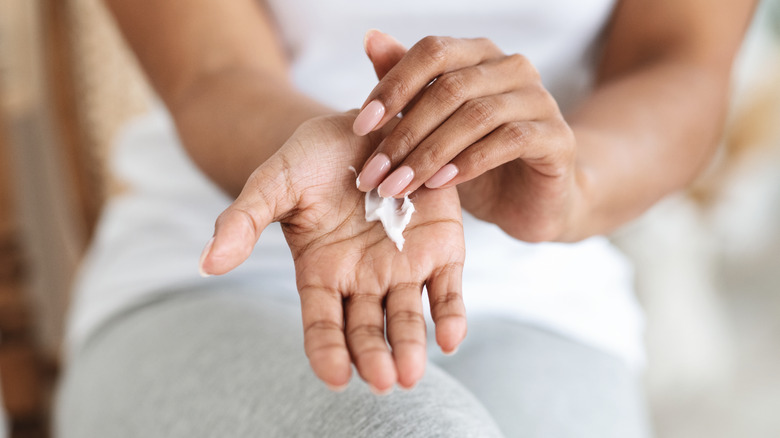Why Drying Your Hands After Washing Is More Important Than You Think
It might not look like it, but bacteria love to live on our skin. In fact, there may be as many as 3,200 types of germs on your hands right now. Thankfully, not all of them are dangerous to us. That said, most of the germs that make us sick do so through our hands, according to Pfizer. That's about the best reason to make it a habit to wash your hands periodically.
You might skip washing your hands every so often, but it really should be a part of your everyday routine, according to the Centers for Disease Control and Prevention (CDC). You should always wash your hands before and after preparing and/or eating food. In addition to that, you should make sure your hands are cleaned after you treat a wound, use the toilet, change a diaper, blow your nose, cough, sneeze, touch an animal, or handle garbage.
Drying your hands helps slow the spread of germs
The proper way to wash your hands is to wet them with warm or cold water, apply soap, and then lather them. You should include the backs, in between your fingers, and under your nails, per the CDC. According to Pfizer, fingertips and thumbs are overlooked the most when washing, so be sure to get those, too. After lathering, you should scrub your hands for 20 seconds before rinsing them under clean water.
While washing your hands is a good first step, you should not stop there. An equally important part of hand washing is drying them. The main reason you need to dry your hands is that wet hands spread germs more than dry hands (via Mayo Clinic). Microbiologist Dr. D.L. Webber told The Sun that as much as 85% of the germs we pass to one another is through damp hands. He added that wet or moist hands are more likely to pick up germs from other surfaces if they are damp, meaning that not drying your hands correctly might be worse than not washing your hands at all.
Care for your hands in between washings
Good hand hygiene also includes taking care of your hands in between washing. During the flu and cold season, you may find that the skin on your hands becomes dry and cracked from washing your hands often. It's important to take care of the skin on your hands because germs can enter your body more easily through dry and cracked skin, per the American Academy of Dermatology Association (AAD).
The Cleveland Clinic suggests using a moisturizing soap and rinsing with cool water to avoid over-drying skin. You can also use lotion to help your skin retain moisture. If you are prone to extremely dry skin on your hands, go with a heavier cream or ointment to keep your skin healthy. The AAD suggests using moisturizers with mineral oil or petrolatum in squeeze tubes because they are more effective than creams or lotions in a pump bottle.



